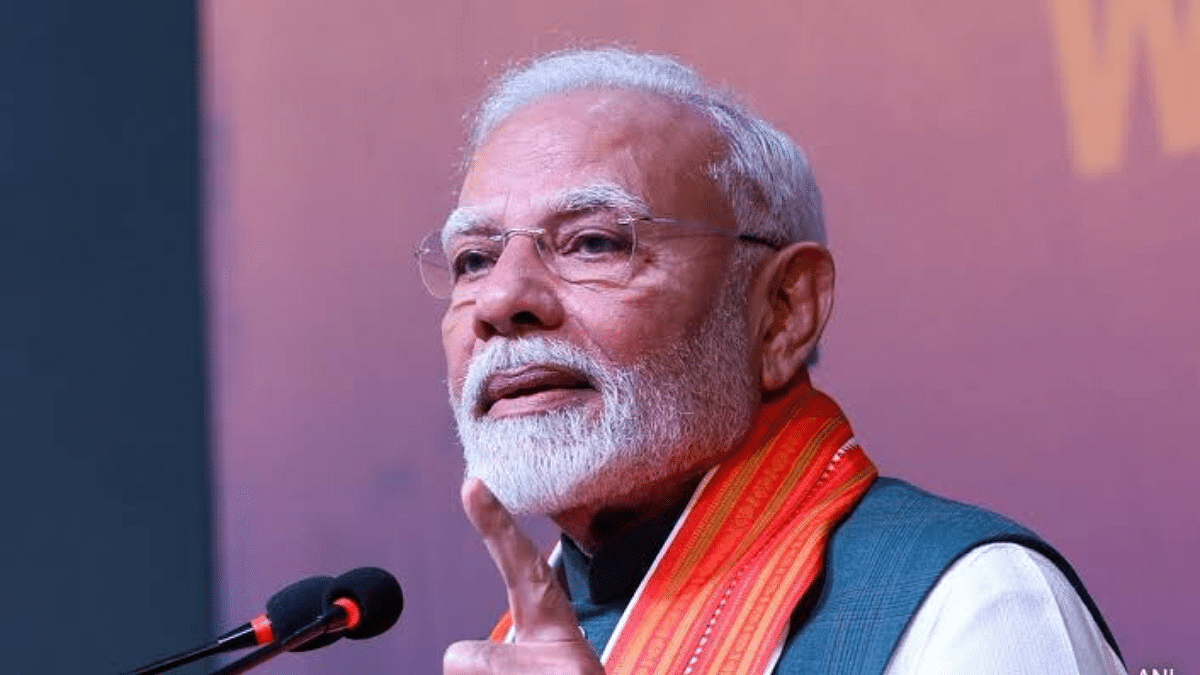New Delhi: Public university academics nationwide now have paywalled journals, publications, and research materials at their fingertips.
The Union Cabinet Monday passed a Bill titled ‘One Nation One Subscription (ONOS)’ that creates a one-stop digital library with institutional access to global research in various academic disciplines.
On Tuesday, Prime Minister Narendra Modi hailed the Bill in a post on X, calling it a “game-changer for Indian academia and for youth empowerment”.
Game-changer for Indian academia and for youth empowerment!
The Cabinet has approved ‘One Nation One Subscription’, which will strengthen our efforts to become a hub for research, learning and knowledge. It will also encourage interdisciplinary studies.…
— Narendra Modi (@narendramodi) November 26, 2024
The Bill, which was introduced as a centrally-sponsored scheme in the Cabinet, was passed with an allocation of Rs 6,000 crore for three years until 2027.
With everything under its digital roof, ONOS is the JSTOR of India—short for “journal storage”, it is America’s digital library of academic journals, books and primary sources.
With this Bill, the government hopes to streamline access to academic resources for students, young academics, and professors in public sector institutions.
A communique by the Ministry of Education stated that 30 global publishers—including Elsevier Science Direct, Taylor and Francis, and Oxford University Press—have already been included in the list under ONOS, and more were on their way.
One special feature of this scheme is that it plans to give access to the database to students and faculty in Tier 2 and Tier 3 cities too, and not just the major metropolitan areas.
“The most important thing for good research is access to high-quality publications, which are expensive,” said Union Minister Ashwini Vaishnaw at a press conference in Delhi. “In college, as students, it is often difficult to access even one good publication.”
Lauding the Prime Minister’s efforts towards “Viksit Bharat by 2047” and making India “Atma Nirbhar”, Vaishnaw said the idea behind ONOS was to pool resources of all public universities to buy common institutional access to global journals for 1.8 crore Indian academicians.
According to a news article in Nature in 2020, the Indian government’s plan to start such a national publication was not new in the world. Previously, the German and Uruguay governments had introduced similar national access to research material.
The article also mentioned “rough estimates” that said Indian institutes spent Rs 15 million per year on subscriptions for journals and paywalled research content.
The pilot implementation of this project showed that users for the project increased by 213 percent from 56 lakh to 177 lakh students, while the number of institutions benefiting from it increased by 167 percent from 2,360 to 6,317. This data was shared by Vaishnaw in the press conference Monday.
How will ONOS work?
The common journal database will be hosted by the government’s autonomous university libraries’ database called Information and Library Network Centre (INFLIBNET), which is a project by the University Grants Commission (UGC).
A look at the list of 30 publishers already included showed they cover a number of academic departments – physics, microbiology, chemistry, mathematics, and the humanities too. Together, these publishers have 13,000+ e-journals to which the Indian public institutions will now have access to.
The “One Nation One Subscription” scheme also has plans for future expansion—the first phase included all 6,300 Higher Education Institutions (HEIs) and research institutes under both central and state governments.
In the second phase, the government plans to expand this to the remaining higher education institutions in the country, both public and private, and Phase 3 will expand the access of ONOS to the entire country.
“If the subscription goes on to include Indian journals too, it would be a great way to get access to research from Tier 2 and Tier 3 cities scholars, which isn’t easily available,” said Anwesha Mohapatra, a PhD student at Jawaharlal Nehru University.
Currently, the model is based on one single national subscription that will be coordinated by INFLIBNET and is entirely digital. The access and usage of this subscription will be regularly monitored by the Anusandhan National Research Foundation (ANRF), which was established by the central government in 2023 to promote scientific research in the country. The ANRF will also contribute to the expansion of publications by Indian authors in participating institutions.
(Edited by: Tikli Basu)
Also Read: Cost of higher education in India is leaving parents drained, in debt. ‘We put our own dreams on hold’

